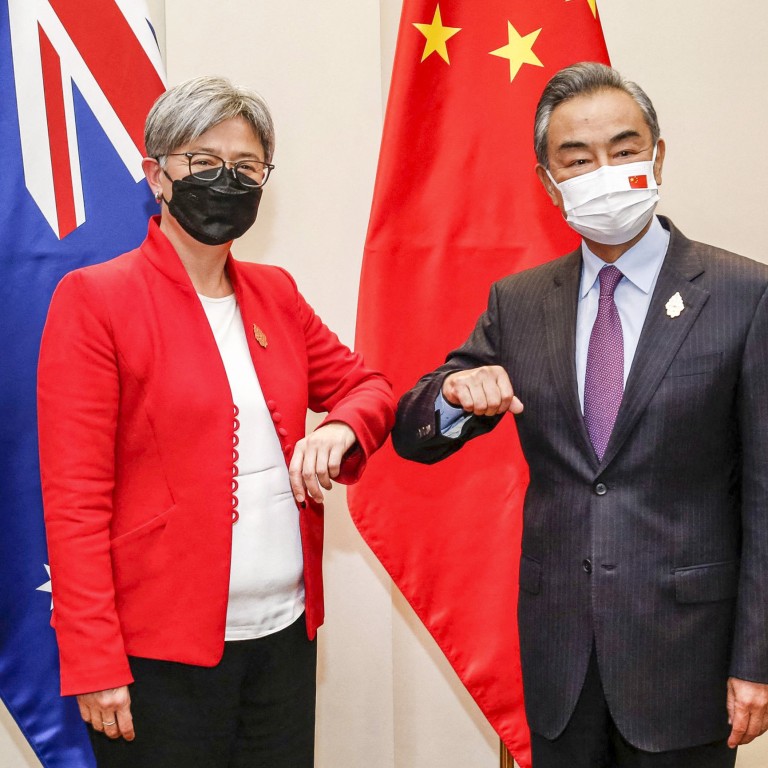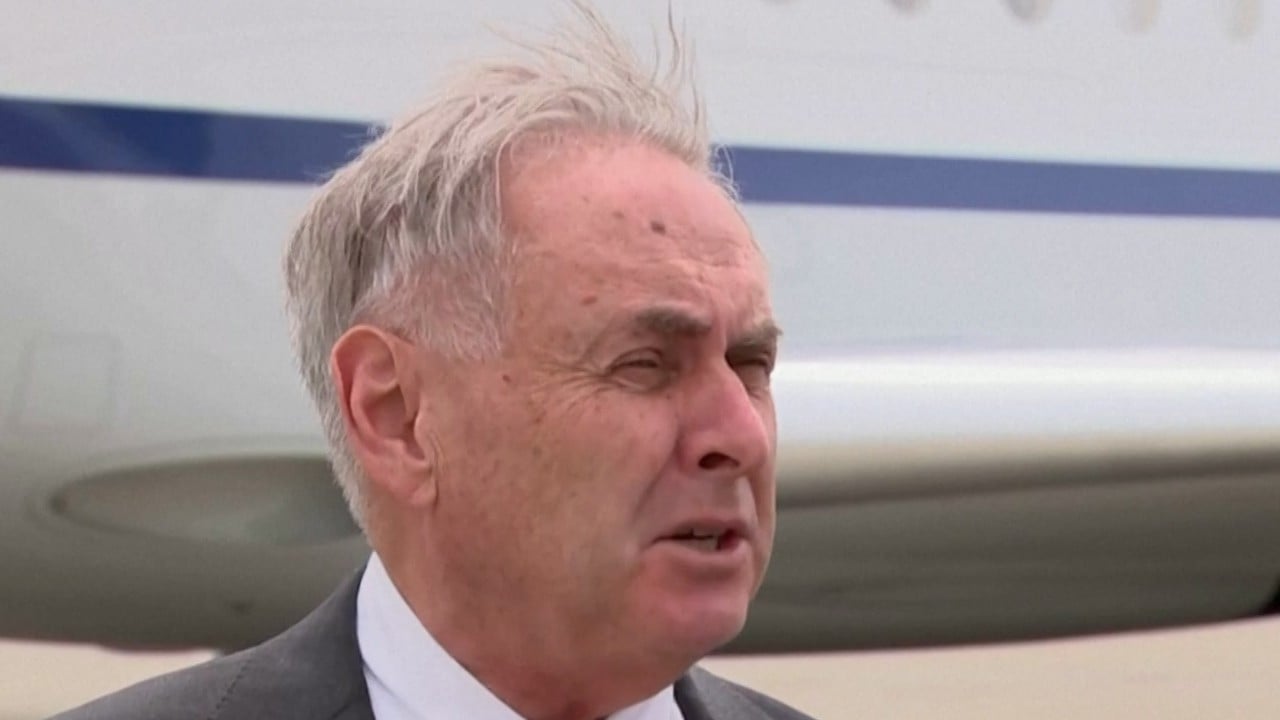
Exclusive | Australia invites China’s new foreign minister to Canberra, sees ‘no downside’ in Wang Yi’s return
- Australia’s embassy in Beijing has issued an invitation from Minister for Foreign Affairs Penny Wong for her newly reappointed Chinese counterpart to visit Canberra
- It replaces an invitation sent to Qin Gang, who was replaced by Wang Yi as China’s foreign minister last week having not been seen in public since June
Australia’s embassy in Beijing has issued an invitation from Minister for Foreign Affairs Penny Wong to her newly reappointed Chinese counterpart to visit Canberra, according to sources close to the Australian government, although a date has not been confirmed.
Australia’s Department of Foreign Affairs told the Post that “future meetings between the foreign minister and her counterpart will be announced at an appropriate time”. It also described a meeting between Wong and Wang in Jakarta in July as “constructive”, adding that the pair had met several times over the past year.
China’s Ministry of Foreign Affairs did not respond to request for comment.
There’s no downside from an Australian perspective in Wang Yi’s return
“No date has been set yet,” the person with direct knowledge of the matter added.
“There’s no downside from an Australian perspective in Wang Yi’s return,” said Professor James Laurenceson, director of the Australia-China Relations Institute at the University of Technology in Sydney.
How are China-Australia trade relations faring after 3 years of ups and downs?
Extending the invitation to Wang is “another progress in stabilising and reinvigorating bilateral relations”, according to Zhou Weihuan, director of the China International Business and Economic Law Centre at the University of New South Wales in Sydney.
“Specific issues in the relationship can only be resolved incrementally,” he said.
“Continuous engagement in good faith based on flexibility, compromise and reciprocity remains essential for the resolution of the outstanding issues, such as China’s anti-dumping duties on barley and wine and Australia’s tightened screening of Chinese investment.”
The bilateral relationship turned sour in 2020 after the Morrison administration asked for a probe into the origin of the coronavirus with other world leaders without consulting Beijing.
In April, China said it would review the necessity of continuing to impose anti-dumping and anti-subsidy tariffs on Australia barley, with an expedited process expected to take three or four months.
Australia suspended its case at the World Trade Organization, but in July, Beijing asked for another month to complete the review.
“In the next week or so Beijing will need to decide whether to lift the tariffs on barley,” added Laurenceson.
“The question then is whether Beijing remains committed to setting aside differences, focusing on areas of mutual benefit, and continuing to chart the more positive trajectory the bilateral relationship has been on.”
Nothing would do more to promote a positive atmosphere for a visit by the Australian prime minister later in the year than releasing detained Australians like Cheng Lei
“Nothing would do more to promote a positive atmosphere for a visit by the Australian prime minister later in the year than releasing detained Australians like Cheng Lei,” added Laurenceson.
Zhou at the University of New South Wales also said that “the further development of economic cooperation, while managing fundamental and other strategic disagreements, also hinges on such engagement.”


